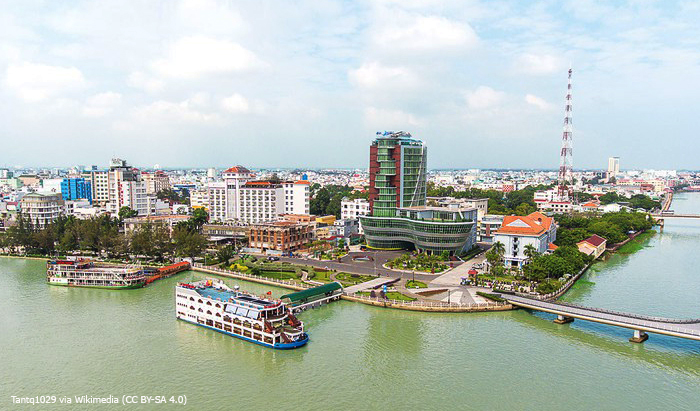
Can Tho Prepares to Become a Major Smart City in the Mekong Delta
Through the use of modern information technology, Can Tho is transforming itself to become Viet Nam’s first smart city in the southwestern region by 2025. By transforming itself into a smart city, Can Tho hopes to further encourage civic engagement, increase competitiveness, and improve the city’s socio-economic development.
The ASEAN Smart Cities Network defines a “smart city” as one that uses technology as an enabler to improve the quality of lives in urban areas. It focuses on developing digital solutions in three main areas: urban planning, service delivery, and financial management.
Here are ways Can Tho, a densely populated area in the Mekong Delta, is integrating and/or plans to integrate smart city approaches in urban management:
- Can Tho’s Department of Planning and Investment is building technical platforms to develop an e-governance model.
- Can Tho’s Department of Transport manages urban transport services using information technology.
- Can Tho, in collaboration with Vietnam Posts and Communications Group (VNPT), set up a smart city framework system, embedded with an Information and Communication Technology (ICT) and smart city solution framework. These will be used to apply a range of information technologies in city administrative activities that will improve services to people and businesses.
- Can Tho is building an “intelligent operating centre” connected with IT systems to monitor socio-economic targets and the government’s performance. Sectors, such as education and tourism, will be supervised using this intelligent operating centre. A feedback mechanism will also be implemented for residents to give feedback on urban order and security.
- Can Tho will launch and use a My City app, a mobile platform with a built-in camera system and an intelligent security surveillance, to receive and resolve residents’ feedback on public services.
- Can Tho plans to apply information technology in management of traffic safety, and intelligent systems to integrate traffic management, including traffic lights, signs and traffic flow analysis.
- Can Tho also plans to apply information technology in information security and safety, food safety and hygiene, environmental protection, and land use management.
- Can Tho plans to adopt intelligent parking systems at tourist destinations.
In addition to these efforts, Can Tho also encourages the private sector to take part in the smart city project by applying technologies and innovation in providing services to the public. Experts have emphasized the major role enterprises play in the socio-economic development of smart urban areas. Support in infrastructure and incentive policies based on modern technology will help encourage participation, according to experts.
The Department of Information and Communications is seeking experts’ opinions in implementing the smart city plan.
The Third Meeting of the Greater Mekong Subregion (GMS) Working Group on Urban Development held in December 2019 discussed the ASEAN Smart City Initiative (ASCI) financed by the Government of Australia through the ASEAN-Australia Smart Cities Trust Fund. The Urban Development Working Group discussion focused on identifying entry points for the ASCI with ongoing and future urban development projects in the GMS and looking at eventual city twinning arrangements.
